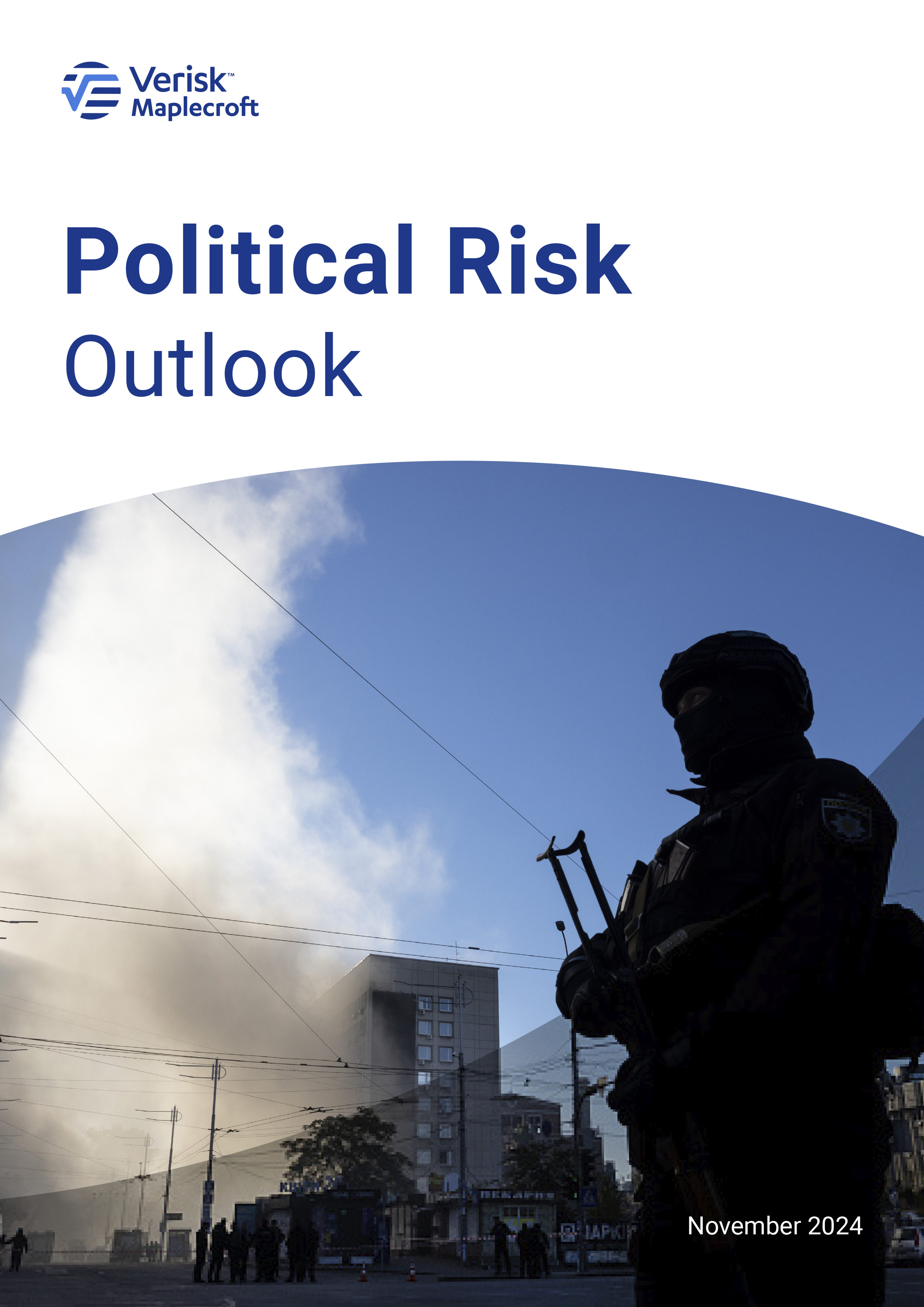Geopolitics are fuelling a dual rise in state intervention and protectionism at levels not seen since the first half of the 20th century in Western democracies. The driving force is governments in Europe and North America looking to safeguard their access to critical resources amid mounting national security concerns, according to our latest research.
Our Resource Nationalism Index (RNI), which measures government control of economic activity within the mining and energy sectors in 198 countries, shows that 72 have seen a significant increase in interventionist policies and protectionism over the past five years.
The trend has intensified most within Europe, with the major economies of Germany, Spain, the UK and Poland all registering major deteriorations on the index since 2019. Nowhere is this more prevalent than in Germany, which has seen the largest drop in score of any country in the last five years. Tightening trade and foreign investment rules have also driven an uptick in risk in the US, Canada and Australia, highlighting a growing shift toward nationalist economic practices within Western industrial policy.
The fracturing geopolitical landscape and the fallout from major shocks such as the pandemic and Russia’s invasion of Ukraine have spurred an acceleration of policies aimed at acquiring the minerals needed to power the green transition and bolster energy security. State focus on supply chain security has opened the door for companies to take advantage of attractive incentive schemes, but geopolitical divergence could increasingly limit opportunities to allied or friendly jurisdictions.
Europe moves to safeguard its critical supply chains
Governments worldwide are increasingly tightening control over their natural resources, a trend that has accelerated over the past five years. In total, 41 countries, responsible for 41% of global mineral output, now fall within the two highest risk categories of the RNI, up from 30 in 2019-Q4.
Unsurprisingly, the 10 highest risk jurisdictions include several major mineral and oil and gas producers that have long deployed ‘traditional’ resource nationalist policies, such as expropriations, nationalisations and resource rent hikes. These include Venezuela (ranked 1st and highest risk), Russia (2nd), Mexico (3rd), Kazakhstan (4th), Zimbabwe (6th), and Iraq (9th).
However, factors such as Europe’s reliance on Russian energy and China’s dominance of critical mineral supply chains are now driving a shift in protectionist and state interventionist policies in the West, increasing resource nationalism risks. These aim to leverage state power to subsidise key industries, secure access to critical resources and restrict foreign investment from geopolitical rivals in strategic sectors.
Germany, for example, has dropped 122 places in the ranking - from 154th five years ago to the 32nd highest risk jurisdiction now. This has been fuelled by the need to fulfil both short- and long-term strategic goals. For the former, this has included measures such as the seizure of assets from Russian energy giants Gazprom and Rosneft following the invasion of Ukraine, as well as the imposition of windfall taxes on energy profits.
On the long-term policy front, critical mineral supply chain security has become a central tenet of Germany’s industrial strategy. Scholz’s administration, like Merkel’s before it, has offered subsidies and incentives to boost domestic processing and manufacturing capabilities. Berlin has also formed strategic partnerships with resource-rich countries such as Canada and Australia, securing access to minerals like lithium, cobalt and rare earth elements through long-term agreements.
Similar trends are evident throughout the European Union, reflecting a broader shift whereby national security concerns are increasingly influencing the bloc’s natural resource and industrial policies. Initiatives such as the European Raw Materials Alliance (ERMA) and the EU Critical Raw Minerals Act specifically aim to cut reliance on external mineral sources through investment in sustainable mining and recycling within Europe. The EU is also diversifying its supply chains by investing in mining projects in Africa and South America and encouraging European companies to reduce their dependence on competing states.
US and Canada tighten trade and investment policies
Across the Atlantic, shifts in trade and investment policies have driven scores on our Resource Nationalism Index downward, notably on our indicator measuring regulatory or taxation system changes that hinder business operations or raise costs.
The US, for example, has passed legislation such as the CHIPS and Science Act and the Inflation Reduction Act, bolstering domestic critical mineral and semiconductor production while limiting Chinese involvement.
It has also formed the Mineral Security Partnership with Australia, Canada, Japan, India, Korea, the UK and the EU 27 in a bid to safeguard access to a host of critical minerals, while also enacting additional trade and investment controls. The Partnership received a boost in September with the launch of an associated financing network to develop major mining projects that will strengthen supply chains and restricted their use in the defence industry, which the incoming Donald Trump administration is all but certain to tighten.
In Canada, the strategy has evolved through a mix of regulatory actions, foreign investment restrictions and strategic economic measures. Key among these are the Investment Canada Act, the Critical Minerals Strategy – which tightens foreign investment rules to keep resources under Canadian or allied control – and stricter environmental and labour regulations, which Chinese companies will likely struggle to meet.
‘Strategic’ resource nationalism another driver of geoeconomic fragmentation
As state rivalries intensify, protectionism and state intervention are likely to drive further fragmentation in the global energy sector, particularly in critical minerals and renewables. Going forward, the most likely scenario is that Western nations will increasingly use a mix of trade and investment policies, along with stricter sustainability standards, to restrict trade with rivals and secure supply chains. This will create a complex risk landscape for investors across a variety of policy areas that will span the entire value chain.
We do not expect Western democracies to seek market dominance through State- Owned Enterprises, but rather to form a new partnership between national and corporate interests by offering benefits and incentives to ‘reshore’ supply chains closer to home in geopolitical terms through new alliances. The risk of raising costs by decoupling from specific rivals is already being priced in.




